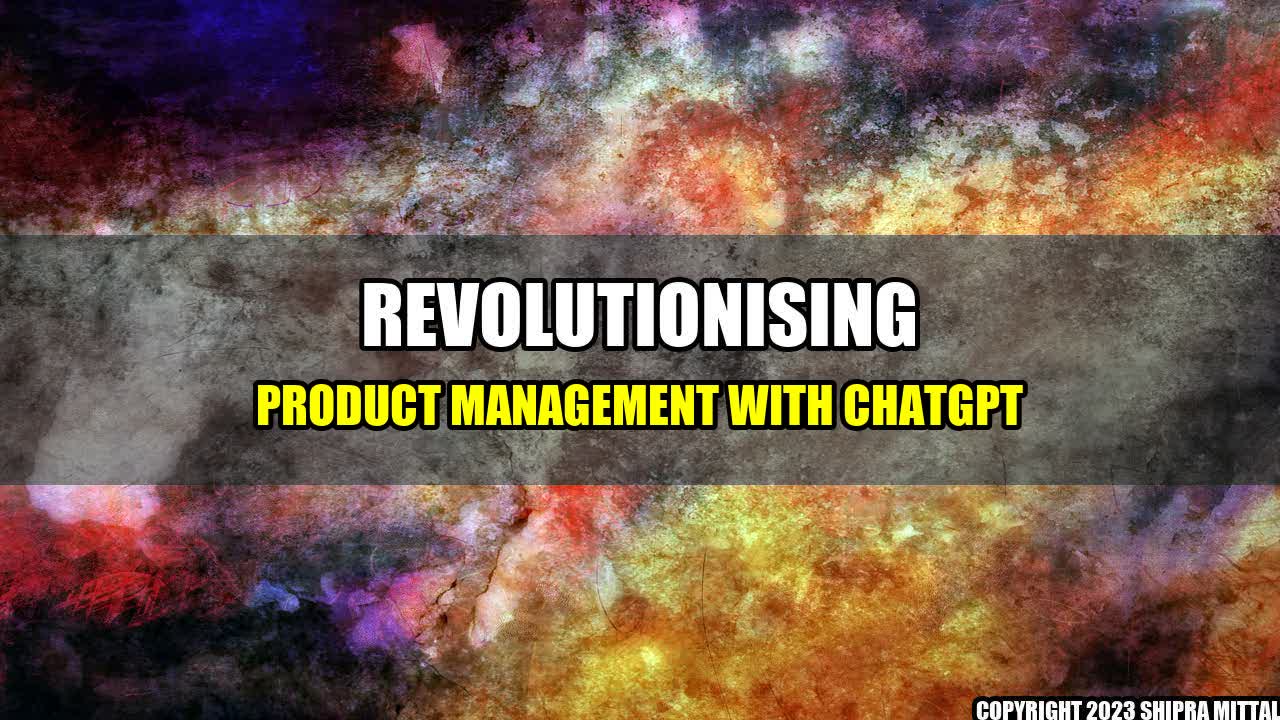John, a product manager at a startup, was struggling to keep up with the ever-increasing demands of his job. He had to manage the development process, communicate with stakeholders, analyze market trends, and respond to customer feedback, all at the same time. He often found himself working late nights and weekends, trying to catch up on his workload. The stress was taking a toll on his health and personal life. He knew he needed a solution.
That's when he stumbled upon ChatGPT, an AI-powered tool for product management. With ChatGPT, John was able to automate many of his routine tasks, such as scheduling meetings, sending reminders, and gathering feedback. He could also use the tool to analyze customer data, predict market trends, and generate product ideas. ChatGPT became John's virtual assistant, taking care of the mundane tasks so he could focus on the important ones.
John is not alone. Many product managers are turning to ChatGPT to streamline their workflow and increase their productivity. Companies such as Microsoft, Google, and Amazon have already adopted ChatGPT and are seeing positive results.
Real-life Examples
Microsoft is one of the companies that have integrated ChatGPT into their product management process. They use the tool to collect customer feedback and generate product ideas. ChatGPT's natural language processing capabilities allow Microsoft to understand their customers' needs and preferences, which helps them develop better products. The tool has also helped Microsoft reduce their product development cycle by automating many of their manual tasks.
Google is another company that has benefited from ChatGPT. They use the tool to analyze market trends and predict future demand for their products. ChatGPT's machine learning algorithms allow Google to extract valuable insights from large datasets, which they use to inform their product decisions. The tool has helped Google stay ahead of the competition by anticipating the needs of their customers.
Critical Comments
While ChatGPT has many benefits, some experts have raised concerns about its potential impact on human jobs. As more companies adopt AI-powered tools like ChatGPT, there is a risk that some jobs will become obsolete. Product managers, in particular, may find that their tasks are increasingly automated, leaving them with little to do.
Another criticism of ChatGPT is that it may not be as effective as human intuition and creativity. While the tool can analyze data and generate ideas, it cannot replace the human touch in product management. Some argue that ChatGPT may be better suited for routine tasks, while humans should focus on the more creative aspects of product development.
Conclusion
Overall, ChatGPT is a promising tool for product managers. Its ability to automate tasks, analyze data, and generate ideas has the potential to revolutionize the field of product management. However, it is important to be aware of the tool's limitations and potential impact on human jobs. As AI technology continues to evolve, it will be interesting to see how tools like ChatGPT will shape the future of product management.

Akash Mittal Tech Article
Share on Twitter Share on LinkedIn